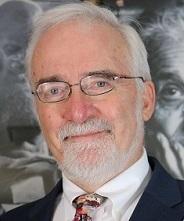David Crismond
Associate Professor, Childhood Education Program Director
Program Director
Additional Departments/Affiliated Programs
Building
North Academic Center
Office
4/218A
Phone
212-650-8436

David Crismond
Profile
Dr. Crismond is an Associate Professor of Childhood Education at City College. He teaches Childhood Education courses in elementary science and engineering methods, curriculum development, and in a freshman writing seminar course the use of design thinking in college and career planning. He also has a joint appointment with City College's Grove School of Engineering where he teaches Introduction to Engineering.
Education
Ed. D. Human Development & Psychology, Harvard Graduate School of Education
M.S. Mechanical Engineering, Massachusetts Institute of Technology
M.Ed. Educational Technology, Harvard Graduate School of Education
M.Ed. English Education, Rutgers Graduate School of Education
B.A. English, Rutgers College
Courses Taught
Undergraduate Courses
EDCE 42000 – Elementary Science & Engineering Teaching Methods
FIQWS 10008 - Career and Calling: Designing Your Self in Society
ENGR 10100 - Engineering Design I
Graduate Courses
EDCE 3000F – Curriculum Development
EDCE 3100C, 3200C – Elementary Science & Engineering Methods
EDCE 7502N, 7504N, 7505N – Elementary Science & Engineering Method (in-service teachers)
EDCE 7508N – Teacher as Designer (in-service teachers)
Research Interests
My current research interests are related to K-16 STEM teaching and learning, especially students’ use of science and math concepts in the context of doing hands-on science investigations and engineering design tasks. I provide tools and strategies to help teachers understand big STEM ideas and build Pedagogical Content Knowledge related to inquiry, design and computational thinking.
Publications
Crismond, D. & Adams, R. (2012). The informed design teaching and learning matrix. Journal of Engineering Education 101(4): 738-797.
Lomask, M., Crismond, D., and Hacker, M. (2018). Using Teaching Portfolios to Revise Curriculum and Explore Instructional Practices of Technology and Engineering Education Teachers. Journal of Technology Education (29)2, 53-72.
Crismond, D.P. and Peterie, M. (2017): Troubleshooting portfolios: Using troubleshooting portfolios to enhance students’ science practices and concepts with engineering design. The Science Teacher 84(5), 51-54.
Hacker, M. Crismond, D., Hecht, D., and Lomask, M. (2017). Engineering for all: A middle school program to introduce students to engineering as a potential social good. Technology and Engineering Teacher 77(3): 8-14.
Crismond, D., Gellert, L., Cain, R., & Wright, S. (2016). Minding design missteps: A watch list of misconceptions for beginning designers. In L. Froschauer (Ed.), Bringing STEM to the Elementary Classroom, 11-18.
Kanter, D., & Crismond, D.P. (2016). Core Idea ETS-1: Engineering design. In R. Duncan, J. Krajcik, and A. Rivet (Eds.), Disciplinary Core Ideas: Reshaping teaching and learning. Washington DC: NSTA Press.
Crismond, D. (2013) Design practices and misconceptions. The Science Teacher 80(1): 50-54.
Crismond, D., Soobyian, M., & Cain, R. (2013). Taking engineering design out for a spin: How a simple whirligig design challenge can highlight both inquiry and design. Science & Children 50(5): 34-39.
Crismond, D., Gellert, L., Cain, R., & Wright, S. (2013). Minding design missteps: A watch list of misconceptions for beginning designers. Science & Children 51(2): 80-85.
Crismond, D. (2013). Troubleshooting: A Bridge That Connects Engineering Design and Scientific Inquiry Practices. Science Scope 36(6): 74-79.
Crismond, D. (2011) "Scaffolding strategies for integrating engineering design and scientific inquiry in project-based learning environments". In Barak, M. & Hacker, M. (Editors), Fostering Human Development through Engineering and Technology Education. Rotterdam, Netherlands: Sense Publishers.
Crismond, David. (2001). Learning and using science and technology ideas when doing investigate-and-redesign tasks: A study of naive, novice and expert designers doing constrained and scaffolded design work. Journal of Research in Science Teaching, 38(7), 791-820.